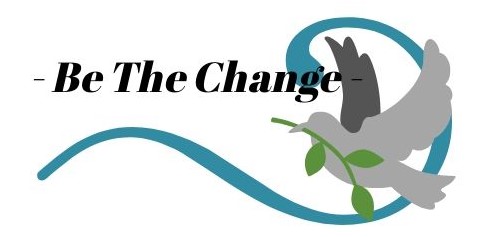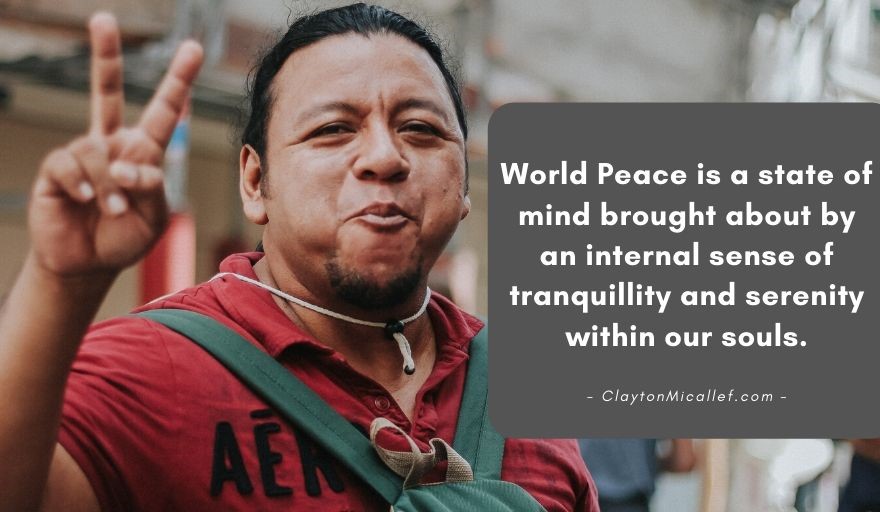Frequently I think of world peace as the absence of war. But is it? Let’s consider the prospect that all the countries in the word agree to reduce their armies and weapons arsenals to the bare minimum. You might argue that we could have peace. However, what stops anyone of those countries from breaking the agreement and restart the production of arms in a show of strength towards the other countries.
This has repeatedly happened in history, and if we look more closely even nowadays, we see countries exerting influence on each other directly or indirectly through the use of soft or hard power, using their military as a medium of expression.
What has always been at the root of the debate is, the fundamental puzzle that one of the paths towards peace might either come through the elimination of weapons or, through the possibility that weapons become so strong that war is no longer profitable or irrational due to collateral damage. Alfred Noble thought the latter when he invented TNT (Tag, 1998). As we all know well, it did not stop the First World War from happening. So you might ask, can we ever achieve world peace? And what might be the path towards such an ideal of peace?
What causes war and peace?
At the fundamental level, both war and peace are consequences of particular aims and ideals, which, when sufficiently accepted by a large number of people of a given society as true or good, will give rise to corresponding norms and policies which, in turn, will either lead to war or enable peace. Furthermore, history shows that ideals of nationalism, communism, socialism, democracy, etc. and dictatorships indirectly or directly all contribute or give rise to war (Orme, 2018).
Understanding the root causes of such aims and ideals and how they come to life is an essential step towards successfully understanding what causes war and peace. Especially if we see each cause in contrast to its opposite can give rise to great insight into successfully understanding the path towards a future of less conflict and more peace.
Looking into the roots of war
But To understand the path towards a future of less war and more peace, we need to start by looking deeply into the root that gives birth to the weapons we create.
If we look deeply, we might see the reflection of our own minds in such weapons — a reflection of our prejudices, fears, greed, hate, anger and ignorance towards each other, to name a few. So much so that the Zen Buddhist Monk Thich Nhat Hanh (2007) argued that “even if we transport all the bombs to the moon, the roots of war and the roots of the bombs are still there, in our hearts and minds, and sooner or later we will make new bombs.” And their lies the answer.
The roots of war are in our hearts and minds, and John David Orme (2018) argued that although history paints the psychological origins of war as stemming from the yearning for glory, honour and power. In reality, the primary cause of conflict arises from when we permit our human nature to become dominated by “primordial feelings” like fear, greed, hate and anger.
Is war a universal human trait?
History clearly shows us that humans have the capacity to make war, but counter to frequent presumption history also tells us that war was absent in some cultures. Evidently, therefore, war cannot be viewed as a universal human trait?
Anthropological studies show us that conflict does not typify certain types of ancestral human societies, like the nomadic forager band (Fry, 2015). This is contrary to widespread belief, and the idea that war is an innate human characteristic, and it has been argued that war might be more of an evolved adaptation. Douglas P. Fry (2015) a renowned American anthropologist, explained that the view of human nature as inherently warlike comes not from arguable facts but from cultural views embedded in Western thinking.
Fry (2015) continues to argue that there is a much-needed paradigm shift in our thinking and increased recognition that humans are not inherently competitive and destructive beings by nature. As Karen Armstrong (2011) argues, compassion might be our default nature. Such that if we take hold of our compassionate nature cooperation, empathy and peace will prevail if we allow them to.
Working towards world peace
Therefore To work for peace is to become aware that the root of war is not something external to us as it lies within our feelings of fear, greed, hate and anger, our prejudices and ignorance. As the philosopher Omraam Mikhael Aivanhov once said:
“Peace is the result of an inner state of harmony. It is not obtained by eliminating anything external, it is inside ourselves that we must find and suppress the causes of war.”
~ Omraam Mikhael Aivanhov
Therefor world peace depends on each and every one of us, on you and me. On our ability to be mindfully aware of our negative emotions, how these effect us, and how we might act because of them. To realise that although we have feelings of fear, greed, hate and anger, we do not need to act on them. And to do so is not within our essential nature and just perpetuates human suffering.
The key to world peace
World peace lies with us and within us. Within our capacity to go beyond feelings of fear, greed, hate and anger. World peace is not just merely the absence of conventional war. World Peace is a state of mind brought about by an internal sense of tranquillity and serenity within our souls.
True Peace goes beyond the absence of war. True peace is a state of mind, and lasting world peace can come only to peaceful people. It comes through our propensity to cultivate and act with kindness and compassion towards each other.
Violence is not the answer
“It seems to me that any sensible person must see that violence does not change the world and if it does, then only temporarily.”
~ Martin Scorsese
It is acts of kindness, compassion and love as described in the Bible:
4 Love is patient, love is kind. It does not envy, it does not boast, it is not proud. 5 It does not dishonour others, it is not self-seeking, it is not easily angered, it keeps no record of wrongs. 6 Love does not delight in evil but rejoices with the truth. 7 It always protects, always trusts, always hopes, always perseveres.
~ 1 Corinthians 13 (NIV)
Such reflected through our actions is what will change the world and bring lasting peace. LET US BE THAT CHANGE! 🙂

All material provided on this website are for general informational purposes only read our disclaimer.
Subscribe to our Substack to receive more reflections on meditation, contemplative practices, and the cultivation of mindfulness, compassion, and well-being.
References
Armstrong, K. (2011). Twelve steps to a compassionate life [epub]. New York, NY: Three Rivers Press.
Fry, D. P. (Ed.). (2015). War, peace, and human nature: The convergence of evolutionary and cultural views. New York, NY: Oxford University Press.
Hanh, T. N. (2007). Living Buddha, living Christ [MOBI]. New York, NY: Penguin Putnam Inc.
Orme, J. D. (2018). Human nature and the causes of war. Cham: Springer International Publishing AG.
Tag, S. (1998, November 20). Alfred Nobel’s thoughts about war and peace. Retrieved from The Nobel Prize: https://www.nobelprize.org/alfred-nobel/alfred-nobels-thoughts-about-war-and-peace/


Some people say that things like technology advances during times of war because scientists scramble their minds against the clock to come up with new inventions.
What a sad thought to think that war is actually good for us. It’s absurd and, frankly, sounds psychopathic to me.
I agree that war is not inherent in us and that we wouldn’t go to war if we controlled our feelings. Then, again, when some dictator is in power and can start a war by the push of a button, we see how easily war can break out.
Additionally, there are those who argue that, in this life, we cannot know peace unless we know war. Sort of, we cannot know white if we don’t know black. I can see their point and I am not sure if it’s Existentialism that argues that suffering is a part of life and that it is up to us to make meaning and to learn from it.
Linking this to spiritual beliefs… God presents us with many opportunities to do good. It is up to us. We live in a world of good and evil, and He gave us the ultimate freedom to choose which one we will follow.
When we are done in this world and fought evil, helped others, etc. then we can rest in peace. And the wicked will go where they chose to go, too.
You mentioned some good points for reflection David 🙂 I don’t think that existentialism argues that suffering is part of life in this sense that it cannot be avoided. What I know it argues is that suffering can be transcended.